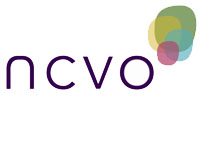Posted on August 24th, 2011 by Pathways through Participation in Archived related news
Tagged as: politics, public participation
Post a comment
Community Matters have produced a new report Encouraging participation: the role of community-based organisations that explores the difference multi-purpose community organisations make to formal and informal political participation in their neighbourhoods. It summarises the findings of an 18 month community research project led by IVAR (Institute for Voluntary Action Research) in collaboration with several volunteer community researchers who were based in seven case study organisations.
Rather than just looking at political participation per se, we were delighted to see that the project had adopted the three categories of participation in our literature review (social participation, public participation and individual participation) to capture the full contribution of multi-purpose organisations to community life, social action and political self-confidence.
The report “suggests it may not always be helpful to divide community activities into ‘political’ and ‘non-political’ types or suggest a hierarchical ladder towards participation. The experiences highlighted in this research indicate that groups which may appear as purely social or leisure in nature can play a vital role in shaping a community’s potential and actual political influence. The experiences highlighted in this research indicate that groups which may appear as purely social or leisure in nature can play a vital role in shaping a community’s potential and actual political influence.”
The findings from the Pathways project which will be made available in September will confirm some of the report’s key messages: many of our interviewees highlighted the importance of multi-purpose hubs in providing spaces for groups to meet, fostering interaction between groups, supporting neighbourhood-level social networks, and linking different organisations and activities.


 ShareThis
ShareThis Subscribe to our project updates
Subscribe to our project updates

